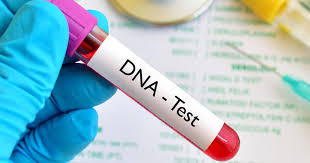A new report by Smart DNA Nigeria has revealed that one in every four paternity tests conducted in the country still returns a negative result, highlighting a persistent paternity crisis and deepening trust concerns within Nigerian families.
The 2025 Annual DNA Testing Report, released this week by the Lagos-based genetic testing company, showed that 25 per cent of paternity tests conducted between July 2024 and June 2025 confirmed that presumed fathers were not biologically related to the children. Although slightly lower than the 27 per cent recorded in 2024, the figure underscores what the firm described as a “worrying and consistent trend.”
“These findings are not just about science; they tell us something profound about trust, relationships, and the legal and economic realities of Nigerian families today,” said Elizabeth Digia, Smart DNA’s Operations Manager.
The report noted that firstborn children, particularly boys, were most affected, with 64 per cent of negative results involving first sons. It also found that immigration-related testing surged to 13.1 per cent of cases, driven by the rising “Japa” emigration wave, while most tests (83.7 per cent) were done for peace of mind rather than legal purposes.
Men accounted for the majority of test initiations at 88.2 per cent, with older men aged 41 and above making up nearly half of all cases. Children aged 0–5 years represented the highest testing group, as parents increasingly sought early clarity.
Lagos State remained the epicentre of testing, with Lekki, Yaba, Ajah, Ikorodu, Surulere, and Ikeja identified as major hotspots. Yoruba families accounted for 53 per cent of clients, followed by Igbo at 31.3 per cent, while Hausa participation was minimal at 1.2 per cent.
The company urged policymakers to address Nigeria’s lack of legislation on paternity fraud and recommended incorporating DNA testing into family planning and premarital counselling.
Smart DNA, however, cautioned that its data does not represent the general population, as it only reflects cases where paternity was already in doubt.

